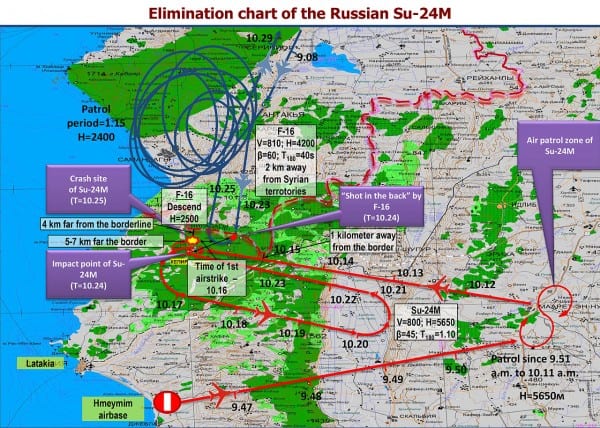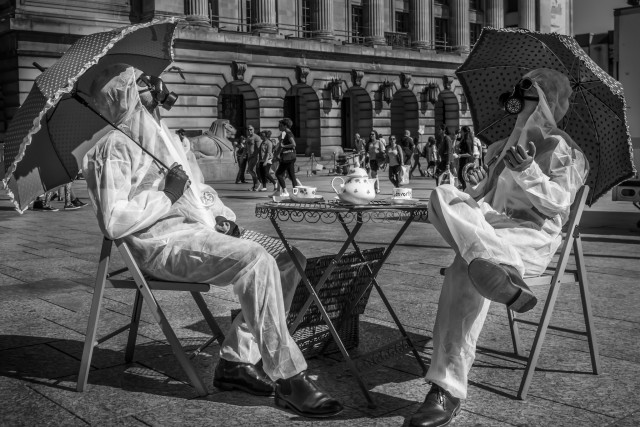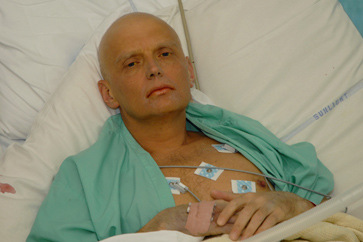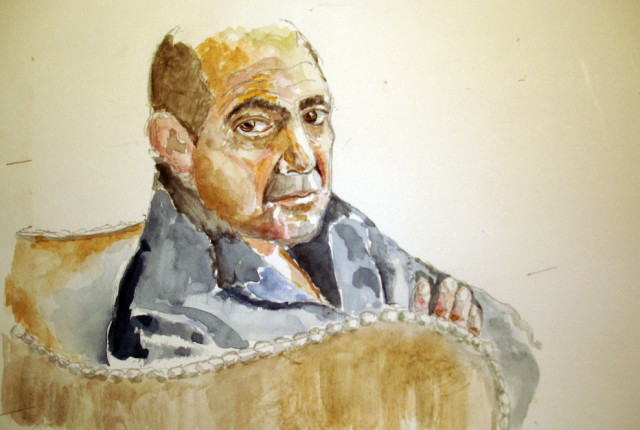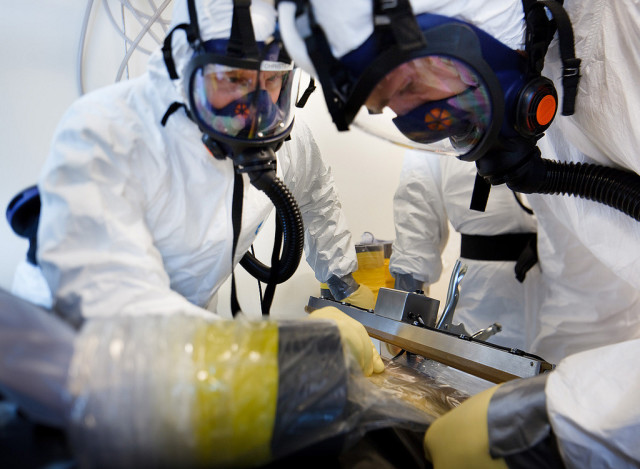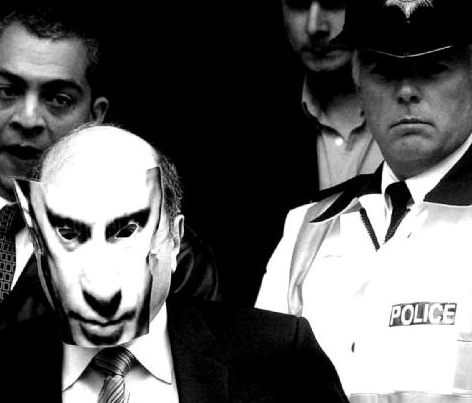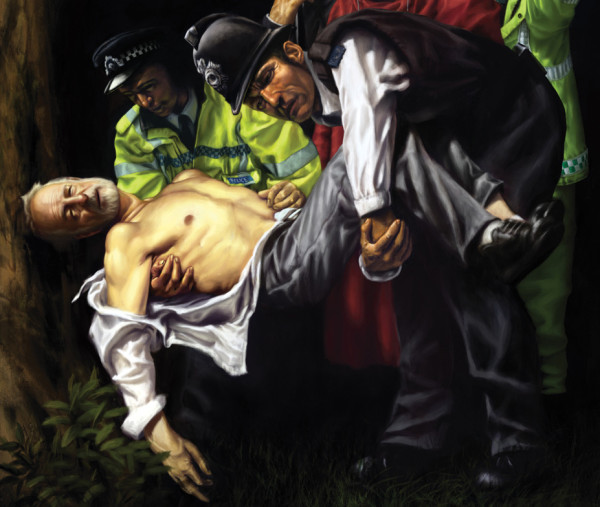
=By= Moti Nissami

Alexander Zinoviev’s Self-Portrait: Thinking is Painful: “Striving after the painful truth has become the fate of exceptionally rare loners.”
Russia and the USA: Criminal Gangs Competing for Turf?
Apart from the mainstream portrayal of Russia as a ruthless expansionist dictatorship (a portrayal too ludicrous to merit attention here), most awake commentators fall into one of two camps.
Members of the first camp believe that the realization of a better world depends on Russia’s success in its efforts to reform itself, maintain its independence, and contain American ambitions.
Members of the second camp believe that the Russo-American confrontation is of no significance to the long-term future of humanity either because that conflict is being engineered by the people who control both nations, or because both sides to the conflict are “criminal networks that use brutality and violence to enforce their control over given areas and to terrorize others.”
Neither camp, to my knowledge, provides a fact-based bird’s-eye view of this topic. The present article attempts to close this gap, thereby enabling readers to form their own opinion. The article concludes with my own tentative attempt to resolve the dispute between these two camps, arguing that both are partially in the right—and partially in the wrong. A conversation on the same topic is available here.
Two opposing views of the Russo/American Conflict
I’ve been studying Russian history and culture most of my life, but never as avidly as now. My main reason for this more intense preoccupation is similar to that of Andre Vltchek’s:
“When I visit a barbershop in Beirut or Amman, and am asked ‘where are you from?’ (It used to be a painfully confusing and complex question to answer, just a few years ago), I now simply reply: “Russia,” and people come and hug me and say, ‘Thank you.’
“It is not because Russia is perfect. It is not perfect–as no country on Earth could or should be. But it is because it is standing once more against the Empire, and the Empire has brought so many horrors, so much humiliation, to so many people; to billions of people around the world . . . and to them, to so many of them, anyone who is standing against the Empire, is a hero. This I heard recently, first hand, from people in Eritrea, China, Russia, Palestine, Ecuador, Cuba, Venezuela, and South Africa, to name just a few places.”
Such sentiments are shared, at least in part, by many other commentators, including F. William Engdahl, the “Saker,” and Pepe Escobar.
In sharp contrast to such favorable views of Russia, there are those who compare the Russo-American struggle to the fake Democratic-Republican contest of American politics.
James Corbett:
“We have been conditioned our entire lives to expect that anything that opposes a demonstrably evil entity must itself be good. . . . But when it comes to the machinations of global geopolitics, this is completely the wrong lens through which to understand what is happening. Much more to the point would be the metaphor of rival gangs competing for territory. It is not the case that the Bloods are the ‘good guys’ and the Crips the ‘bad guys’ or vice versa; they are both criminal networks that use brutality and violence to enforce their control over given areas and to terrorize others.
“Similarly, if we understand that rivalries between various international organizations (to the extent that they exist at all) are really only battles between gangsters for control over the global turf, we can more clearly understand that it is not a question of choosing sides in the struggle, but opposing the very ideologies of centralized, hierarchical control that make these institutions possible.
“If what we are combating is, as I posit, essentially two (or more) gangs competing for turf, then it is self-evident that we gain nothing from supporting one gang over another other than the vague hope that the other gang will treat us more kindly.
“The real solution to centralized, hierarchical international institutions created by and for the interests of the oligarchical elite are decentralized, non-hierarchical relations created by and for the grassroots.” (See also Sibel Edmonds).
Brandon Smith goes even farther, claiming that both criminal networks are controlled by a higher-level criminal network of bankers. These bankers are engineering a potentially deadly conflict between their two (or three, if one includes China) networks, in order to enslave humanity. Thus, Smith is plausibly perplexed by people who are
 “so awake and aware of the false left/right paradigm while remaining astonishingly naïve and short sighted when it comes to the false East/West paradigm. There are no “sides” in any modern conflict, only proxies fighting on a global chessboard controlled by the same elitist interests. . . . War is meant to forcefully change the “inertia” of civilization, and thus, forcefully change the direction of civilization in a manner that benefits the engineers of the conflict. . . .”
“so awake and aware of the false left/right paradigm while remaining astonishingly naïve and short sighted when it comes to the false East/West paradigm. There are no “sides” in any modern conflict, only proxies fighting on a global chessboard controlled by the same elitist interests. . . . War is meant to forcefully change the “inertia” of civilization, and thus, forcefully change the direction of civilization in a manner that benefits the engineers of the conflict. . . .”
Elsewhere, Smith says:
“Russia and the U.S. are nothing but false champions dueling in a fake gladiator match paid for by the IMF. The most frightening aspect of the false paradigm between East and West is the potential it creates for the co-option of liberty proponents here in America. . . . .There is no nation out there in the ether of central banking that is going to help us. The sooner we come to terms with the reality that we are on our own, the stronger we will be when the fight begins.”
Such conflicting views (e.g., Vitchek vs. Corbett) raise two sets of questions.
First, is the USA controlled by a criminal gang? The answer, as we shortly illustrate and as anyone thinking for herself can immediately see, is a resounding YES.
Second, should we, the people who believe in environmental stewardship, social justice, peace, spirituality, common decencies, and freedom, throw our support behind Russia, or should we treat the current Russo-American conflict as nothing more than either a larger-scale turf war between criminal outfits or perhaps a phony fight between bankers’ marionettes? Should we look to Russia and ourselves to solve the world’s problems, or only to ourselves?
The bulk of this article attempts to address this second, complex, set of questions. The answer, lamentably but unavoidably, is multifaceted, long, and ambivalent. If reading such an exposition requires more time or patience than you have, you might wish to only read the last two sections (“the balance sheet” and “the Russian Phoenix: Hope or Illusion?”).
Alternatively, you might wish to click on the link below and listen to a conversation on the same topic at Jeff J. Brown’s China Rising.
The USA is Controlled by a Criminal Gang
The question is, if they [American government] would do this . . . if they would feed radioactive oatmeal to helpless children and lie to them and their parents about it for years . . . well gee, is there anything they wouldn’t do?– Melissa Dykes, 2016
“The US government is the most complete criminal organization in human history.”—Paul Craig Roberts (senior official in the Reagan Administration), 2016
“We live on a planet well able to provide a decent life for every soul on it, which is all ninety-nine of a hundred human beings ask. Why in the world can’t we have it?” –Jack Finney, 1970
America is controlled by a criminal gang whose ultimate goal is, apparently, to empower and enrich itself while impoverishing and enslaving everyone else. Here are a few typical examples showing that American policies at home and abroad are exploitative, self-destructive, and utterly devoid of morality:
1. The USA is secure from foreign conquests—and yet it spends over $1,000,000,000,000 on the monstrosity of conquest (the official number, which is roughly half that figure, is a blatant lie). That is, the USA alone spends more on wars of aggression than all the nations of the world combined spend on attacking others or defending themselves! The USA likewise has one of the most corrupt war procurements establishments in the world, and a collection of overseas military garrisons “unprecedented in history.” This rarely stated attempt to rule the world by force is clearly a crime against humanity, for it causes millions of deaths, billions of partially fulfilled lives, and environmental destruction.
The other side of this massive gangsterism is opportunity costs. Buckminster Fuller, for example, conclusively showed that humanity could “take care of everybody on Earth at a higher standard of living than any have ever known” by merely shifting less than half of the military budget to such things as food, education, and shelter.
2.
“Go ahead and hate your neighbor,
Go ahead and cheat a friend.
Do it in the name of Heaven,
You can justify it in the end.”—One Tin Soldier
Syria provides one heart-rending example of America’s psychopathic strategy of “devouring the world, one country at a time.” Since economic blackmail and assassinations failed to shake Syria from its independent path, America, relying on a few of its viciously theocratic allies in the Middle East, trained, supplied, funded, and unleashed upon Syria a barbarian horde of mercenaries.
This was preceded by decades-long, well-funded, indoctrination of these would-be mercenaries with Wahhabism—an ideology that has little to do with genuine Islam and everything to do with the Houses of Rothschild’s, Rockefeller’s, and Saud’s dictatorial and imperial aspirations. Against all odds, the Syrians are valiantly resisting, and so far they have not paid the awful price paid by such victims of America’s imperialist designs as Indonesia, Mexico, Iraq, or Libya.

Since 2011, America’s colonial war in Syria has been carried out in part in cooperation with such human rights “guardians” as Saudi Arabia, Turkey, and an assortment of genocidal zombies. That war led to the death of some 2% of the population, the wounding of a few more percent, displacement of 50%, and irreversible traumas to 99%.
As in Guatemala, Iran, Vietnam, and scores of other countries, this genocide involves an outright rejection of democracy:
“Such are the West’s ‘democratic’ allies. They refuse to allow what Assad and Putin have been insisting upon: a Syrian Presidential election that will be internationally monitored, and not concluded unless and until the international monitors announce that the results were not produced by fraud.
The reason that the West refuses a democratic determination of the matter is that even the polling that has been done in Syria by Western polling firms consistently shows that Assad would win any democratic election in Syria overwhelmingly.
And the reason Assad would win is obvious: the U.S fostered this war at least from the moment that Barack Obama became America’s President, and most Syrians blame the U.S. and ISIS, not Assad, for their misery. And so, they loathe America. They know that America leads this invasion, from behind the scenes.”

What the Invisible Government did to Syria in 4 years.
Multiply this atrocity a thousand times, with variations, and you get the picture. Genocide, deceit, hypocrisy, lawlessness, exploitation, fascism, and heartlessness lie at the core of America’s overseas behavior.
From the colonization of America itself, to slavery, to Mexico, Philippines, Nicaragua, Vietnam, twice-conquered Germany, twice-nuked Japan, Indonesia, Southern Cone, Honduras, Palestine, Iraq, Saudi Arabia, Ukraine—since 1694 one rule defines British and American foreign policy: “and this rule is that there are no rules.”
3. The vicious brilliance of America’s rulers at times defies belief. Thanks to bribes, assassinations, the new Gladio conspiracy, extensive wiretapping and blackmail of who’s who in Europe, economic warfare (e.g., the recent FIFA “scandal,” the VW “scandal,” following an earlier Toyota “scandal”), and control of the banks, corporations, media, and intelligence services of Western and central Europe, even that once-independent half-continent is now a submissive colony of the USA. In the words of one historian, “the level of abjection passes belief.”

“The promise was that when the glass was full, it would overflow, benefiting the poor. But what happens instead is that, when the glass is full, it magically gets bigger—Nothing ever comes out for the poor.”— Pope Francis
4. Sadly, owing in part to the 1990s disastrous collapse of the USSR, America’s real rulers accelerated their war against their own people, again playing by their favorite “anything goes” rule.
They have acquired vastly more power and riches, while relegating the American Constitution into a meaningless piece of paper, applied the lessons they have learned from the Gladio Conspiracy to their contrived war on terror, assassinated or brutally tortured their real and imaginary opponents, stole so much from so many to the point that America’s 20 wealthiest people now own more wealth than the bottom half of the American population combined, neglected America’s infrastructure, elevated self-serving mendacity to an art form, conducted a phony war on drugs, used these very drugs and an utterly broken justice system to turn the USA into an incarceration nation in which jailers enjoy a de facto license to kill, destroyed American industry, and converted a once-rich country to the “most bankrupt nation in history.”
5. As a final example, take Michigan. Universal sunshine bribery of federal officials led to the abolition of tariffs on the imports of vehicles into the USA, thus enabling Michigan’s car manufacturers to move their factories overseas. This industrial migration in turn caused massive unemployment and underemployment in Michigan. To prevent violent uprisings, besides controlling the mainstream churches, schools, and media, the Invisible Government deliberately initiated and sustained a prescription and illegal drugs dependence epidemic.
One must live for a while in Motown—once the richest city in the Union—to really assimilate its decline. Through no fault of their own, countless Detroiters have been reduced to welfare, homelessness, hopelessness, or extreme poverty. In winter, one may see people standing outdoors, staying warm by huddling around a pile of burning tires. And, as in countries like Greece, the bankers even let go of the pretense of democracy—Detroit is administered by criminal poverty enforcers indirectly nominated by the bankers.
The mandate of these enforcers is simple: Hand everything of value to their bosses and their cronies, and rob the people of the little dignity and possessions they might have left. It’s a crass class war, a textbook example of the economic hit man strategy.
 Water, a basic human right, provides one macabre example of the bankers’ shock doctrine. As part of the austerity regime, thousands of people who cannot afford to pay for their water—including Detroiters living within sight of the mighty Detroit River—must do without running water in their homes.
Water, a basic human right, provides one macabre example of the bankers’ shock doctrine. As part of the austerity regime, thousands of people who cannot afford to pay for their water—including Detroiters living within sight of the mighty Detroit River—must do without running water in their homes.
But those 9,000 and counting Detroiters are lucky. In Flint, a sister city to the north which suffered an almost identical fate of job losses and induced helplessness, the class war has led to the deliberate poisoning of the majority.
And no, we are not talking here about the treacherous addition of fluoride to the drinking water of middle-class and poor Americans, where we only need mention in passing that fluoride is a waste product that does not prevent tooth decay but does cause “bone cancer in boys, bladder cancer, hypothyroidism, hip fractures and lower IQ in children.” In Flint, the bankers resorted to an additional, older, trick of biological warfare. That trick is lead, as in Arsenic and Old Lead.
In April 2014, the austerity enforcer switched Flint’s water supply from the moderately-unsafe Detroit water system to the industrial cesspool otherwise known as the “Flint River.” Besides the unhealthy witch’s brew imbibed by the disempowered, unsuspecting, televised, and fluoridized poor inhabitants of Flint, this decision indirectly caused the “doubling or even tripling” of lead levels in children. Both the governor of the state and the EPA (Environmental Plundering Agency) were fully aware of the problem in advance, but felt that it was worth harming and dumbing down tens of thousands to save $100 a day.
In reality, the actions of these agents of the Invisible Government have little to do with saving $36,500 a year—and everything to do with this:
“In five years, these kids are going to have problems with special education. They’re going to have cognition problems. Seven to 10 years, they’re going to have behavioral problems.”
These youngsters might, in other words, make obedient welfare recipients, inmates of “schools” and prisons, McDonald dishwashers, drug addicts—but pathetic revolutionaries.
If you have any doubts that the real goal is poisoning children, not saving a miserly $36,500 a year, consider this. That same criminal Michigan “governor” behind the Detroit and Flint water warfare, gave “away billions of dollars in tax credits to major corporations and blown a huge hole in his budget” while simultaneously squeezing additional $900 million from average Michiganders.
****
One can go on forever wading through the sewer that still calls itself the American government. Everywhere and always, there are lies, propaganda, dumbing down, corruption, theft, exploitation, poisoning, brutalization, and vicious class warfare.
Thankfully, in this article we have other sturgeon to fry and will merely sum the above random sampler with the following words: As far as the USA and the West are concerned, James Corbett hit the nail on the head: The American government is a criminal network.
But Corbett sees no fundamental distinction between America and Russia. Hence the question: Is the Russian Federation a criminal network too?
Background Information: The Russian Catastroika
“Will we continue looting and destroying Russia until nothing is left?”–Alexander Solzhenitsyn, 2000.
Before evaluating Russia, we need to look back at some of the horrors visited on the Russian people by America’s rulers and their handpicked Russian quislings.
In the 1990s, America’s de facto occupation of Russia sank that once-powerful country into chaos, poverty, criminality, corruption, assassinations, organized crime activities, and social discord. Washington and its quislings were running—and ruining—the country, controlling every aspect of life, including mainstream information sources. For instance, in 1993 Yeltsin attacked the Russian parliament with tanks for daring to protect the interests of the Russian people, and in 1998 most Russian banks went bankrupt.
Here is how one historian described the aftermath of the Soviet collapse in just one satellite country:
“Today Romania is a dumping ground for foreign goods. In the last 20 years, national industry has completely disappeared, and strategic sectors have been sold to foreign companies. Salaries have been cut back, unemployment is rising, drugs and prostitution are spreading. Today Romanians consider December 1989 not as a victory of democracy over dictatorship but as a tragedy and a mistake.”
Washington also revved up its preparations for further disintegrating the Russian Federation, engineering rebellions inside that Federation itself. Washington also broke a promise not to expand NATO to previous members of the Warsaw Pact, and encroached on the very borders of the Russian Federation.
Much of this changed for the better when Putin assumed the presidency.
Does Russia Provide a Meaningful Alternative to America’s Invisible Government?
“[The men of the Invisible Government] would continue to grow in strength, until they had the whole silly world, the whole credulous world, the whole ingenuous world, in their hands. Anyone who would challenge them, attempt to expose them, show them unconcealed and naked, would be murdered, laughed at, called mad, ignored, or denounced as a fantasy-weaver.”—Taylor Caldwell, 1972 (Captains and the Kings)
To approach this topic, we must look at the record of the Russian government from a variety of angles.
I. The Russian Phoenix Rises Again: 2000-2015

Did Boris Yeltsin deliberately save Russia from the Invisible Government? Shown here: “Boris Yeltsin and Vladimir Putin at the ceremony marking Putin’s inauguration as president in May 2000.” (source)
On his deathbed, Yeltsin must have realized the extent of his and Gorbachev’s folly: “Take care of Russia” he told Putin.
Putin obliged, starting by “patiently nursing the collapsed Russian economy back to health from 1999 to 2007,” ushering (according to his presstitute enemies), “a period of unprecedented prosperity.”
Here are a few examples of the remarkable economic and social transformation of Russia in the last 15 years:
The percentage of people living below the poverty line went from 29%, in 2000, when Putin became President and Washington’s power over Moscow’s diminished, to 11% by 2013.
By October 2015, the Russian government was “finalizing a bill which will give an opportunity to every Russian citizen to obtain one hectare of land, or a maximum of five hectares for a family of five, in the Russian Far East for free.”
Homicides declined from 19 per 100,000 in 2004 to 9 in 2012 (but they are still about twice the American rate of 5.2 and 18 times the Swiss rate). This reduction was made possible, in part, by upgrading the quality of the police force, curbing the powers of US-manufactured oligarchs, reducing poverty, corruption, and destitution, fighting organized crime, and curbing the activities of CIA- and Saudi-supported Wahhabi terrorists.
Russia returned to the people some of their stolen wealth, e.g., ownership of national resources such as oil and gas. Thus, instead of letting Western corporations and their local stooges become the principal beneficiaries of Russia’s vast natural resources (as is the case in all Western “success” stories, e.g., Ukraine, Mexico, Iraq . . . ), some of the benefits, at least, accrue now to the rightful owners—the Russian people themselves.
Life expectancy climbed from 65 to 70 (2000-2012)
The shipbuilding, aerospace, and auto industries partially recovered, made possible in part by reorganization, state guidance, and protective tariffs.
Production and exports of fossil and hydroelectric energy resources improved.
A key mechanism of weakening Russia in the 1990s involved the destruction of its industry and agriculture. The objective was simple: convert a literate, creative nation to the level of Saudi Arabia or Ghana—countries that have been reduced to exporters of raw materials or a few cash crops. Such countries depend on the Invisible Government for their very existence and can be, at the moment they defy Wall Street, readily destroyed via rigging of markets and economic warfare. Although much yet remains to be done, Russia has taken a few tentative steps on the road to self-sufficiency. Here is one example of this developing strategy, as explained by Russia’s president:
“We are not only able to feed ourselves taking into account our lands, water resources – Russia is able to become the largest world supplier of healthy, ecologically clean and high-quality food which the Western producers have long lost, especially given the fact that demand for such products in the world market is steadily growing. . . . Ten years ago, we imported almost half of the food from abroad, and were dependent on imports. Now Russia is among the exporters. Last year, Russian exports of agricultural products amounted to almost $20 billion – a quarter more than the revenue from the sale of arms, or one-third the revenue coming from gas exports.”
Russia successfully derailed CIA-instigated “rebellions” in Chechnya and Moscow.
Russia legally and peacefully repatriated Crimea, thereby forestalling Washington’s plans of Nazifying and enslaving Crimeans (ethnic Russians for the most part) and dismantling Russia’s all-important naval base in Sevastopol.
Russia revitalized and modernized its military, to the point, perhaps, of regaining the ability to check Washington’s plans of trampling under foot every country on earth. The advances in the military field have been so rapid and striking as to lead some knowledgeable observers to the (almost certainly mistaken) view “that Russia has now become the world’s leading military power.”
Advances have been made in such symbolic areas as sports too, partially restoring the remarkable achievements of the USSR: “The Sochi Winter Olympics in 2014 were a triumph for Putin.” In Sochi, Russia had also received more medals than any other country. Likewise, and despite Washington’s Machiavellian attempts to torpedo this, Russia is expected to host the world soccer cup in 2018.
Obviously then, Putin and his team uplifted the Russian nation and the quality of life for the majority of its citizens. As a result, as of June 2015, Putin enjoyed a popularity rating of 87%! (Obama: 48%) Also, by 2014, 64% of Russians trusted their government (a 27% improvement from 2007)
Such numbers are especially striking when compared to Americans’ attitude towards their own government. Thus, according to one source, only 35% of Americans trusted their government. A more reliable source gives the following late 2015 figures: only 18% of registered American voters were content with their government, while 82% were frustrated or angry, of which 27% viewed the American government as their enemy. Similarly, 81% of Russians also had a negative view of the United States.

Is the Russian phoenix rising once more from the ashes?
II. Restoring Multipolarity?
“Russia’s entry to the side of the Syrian government has great potential for finally stopping the US from treating the world as a stepping-stone to unchallenged global hegemony.”—Kim Peterson and B. J. Sabri, 2016
“Washington doesn’t care about peoples’ dreams or aspirations. What they care about is ruling the world with an iron fist, which is precisely what they intend to do for the next century or so unless someone stops them. Putin’s actions, however admirable, have not yet changed that basic dynamic.”—Mike Whitney
According to the CIA Post:
“During the Clinton administration, the United States pushed hard to expand NATO, breaking a critical promise to Russia not to threaten its sphere of influence. During the George W. Bush administration, there were more missteps, especially the U.S. walking away from the Anti-Ballistic Missile Treaty, causing irreparable harm to the countries’ fragile relationship.”
 By 2007, these extreme provocations, the earlier looting of Russia, its ongoing encirclement, a series of regime change attempts involving Central Institute of Assassination (CIA) agents provocateurs and snipers, and American nuclear brinkmanship, finally forced the Russian bear to begin to see that it was being maneuvered into a cage:
By 2007, these extreme provocations, the earlier looting of Russia, its ongoing encirclement, a series of regime change attempts involving Central Institute of Assassination (CIA) agents provocateurs and snipers, and American nuclear brinkmanship, finally forced the Russian bear to begin to see that it was being maneuvered into a cage:
“More and more we witness the flouting of the basic principles of international law. . . . The United States is overstepping its national borders in every field: in economics, in politics, even in the humanitarian sphere. . . . And this, of course, is very dangerous. . . . Russia is a country with a history that spans more than a thousand years and has practically always had the privilege of carrying out an independent foreign policy. We are not going to change this tradition today.”
Gilbert Doctorow cogently explains Russia’s subsequent actions:
“One may suppose that the purpose is not to touch off or accelerate an arms race but, on the contrary, to bring the other side to its senses and persuade it of 1) Russia’s seriousness about defending militarily what it sees as vital national interests and 2) its ability to deliver massive destruction to an enemy even in the face of a possible first nuclear strike, and so to reinstate the Mutually Assured Destruction deterrence that America’s global missile defense was supposed to cancel out. . . . Russia has set down certain red lines, such as against NATO expansion into Ukraine or Georgia over which it will fight to the death using all its resources. We ignore these messages at our peril.”

Russian demonstrators carrying a fake missile with the inscription: “An Obama Special.”
Russia’s actions in recent years appear consistent with the setting down of such red lines, most conspicuously in Abkhazia and Ossetia, Crimea, and Syria. By contrast, earlier, while Russia was weaker, it watched in silence while the USA attacked Russia’s allies Yugoslavia, Iraq, and Libya.
Russia’s efforts to escape imperial tyranny are not confined to itself or Syria. Every country that wishes to escape servitude to America’s invisible rulers owes its continued existence, in some part, to Russia. Here for instance is Zimbabwe’s Ambassador to Russia:
“Both Russia and China are . . . continuing to oppose the illegal sanctions the West has imposed on us—a blatant attempt to change an elected government by crippling our economy in the hope that the masses would rise up against it.”
So much for Russian actions which can be best seen as a determined policy to restore its national independence and the more civilized multipolar world that existed before 1990. And yet, as with so many aspects of the Russian paradox, there is another side to this story too.
To begin with, when it comes to Western coups d’état and other violations of international laws, Russia’s actions are often characterized by puzzling timidity. Take the Ukraine for instance, a country inhabited for the most part by Slavs, who either speak Russian or a Russian dialect, use the same alphabet, have always been linked to Russia through family and economic ties, and have traditionally been affiliated with the Russian state. In the 1990s, Russia granted the fictional country of Ukraine independence, but the ties uniting the two countries remained. The CIA then proceeded to break these ties, a project that took decades to accomplish—while the Russians inexplicably stood aside and looked! The CIA then ordered the massacre of ethnic Russians in the East who democratically chose to secede from Ukraine. Here too, Russia provided the secessionists some help, but refused to support independence or annexation—so the needless carnage and oppression of Russians living in modern-day Ukraine continues to this very day.
But such examples are the tip of the timidity iceberg, for Russia enigmatically eschews cheaper, more effective, and less painful measures than its Syrian campaign. This avoidance again casts doubts on the Russian government’s commitment to a multipolar world.
Prof. Michael Hudson and others underscore the fact that the USA has consistent, massive, balance of payments deficits with such countries as Russia, China, and Japan. Financialized and deindustrialized America buys real goods from them and pays by running its printing press. Consequently, such countries accumulate the digital equivalents of billions or trillions of dollars.
They then use a good part of this money to buy U.S. treasury bonds. The net result of this convoluted, scarcely credible, process is straightforward: By financing the U.S. military and economy, these countries empower their own oppression.
One can understand why nations like Japan or Germany would engage in such self-destructive behavior, given the presence of American garrisons in their lands and the presence of thousands of bribed fifth columnists and bootlickers in their media, economy, armed forces, and assassination squads. But why would Russia and China, now fighting for their very survival, support their own military encirclement?
Do they really believe that they can win that ongoing war by small, painfully slow, steps? Do they really believe, in other words, that turtles can outrun hares? Why do they indirectly finance the construction of the hundreds and hundreds of nuclear bombs that one day might totally and irrevocably turn Moscow or Beijing into a fate worse than nothingness (already in the 1950s, “there were 179 ‘designated ground zeros’ for atomic bombs in Moscow” alone)? Why do they finance America’s economic sanctions against them? Why don’t they only accept payments for anything they sell in gold, silver, or their own national currencies? Why don’t they turn their enemies’ world upside down by linking their currencies to silver or gold or by resolutely stopping the rigging of the interest rates market?
Why don’t the Russians, for that matter, invest a few billion dollars to stop, once and for all, the rigging of the silver market by their paper-shuffling enemies? They can thus gain billions and cause incalculable harm to the dollar and the Western banking system (at today’s rigged prices, all the silver in the world is only worth about $14 billion and can be manipulated up or down by just one of Russia’s top oligarchs—let alone the Russian government)?
If they are serious about their national independence, why do they always react to Western actions, instead of proactively checkmating their enemies?
This is worth repeating: Russia is financing its own encirclement and the ongoing attacks on its economy and currency. Apart from its actions to save Crimea and Syria and a few other places, the Russian government is doing precious little to undermine the new civilization that America has imposed, “where the entire world is economically enslaved to the United States,” and where the USA smashes to smithereens any country that refuses to hand over its economic surplus.
It should be underscored that the failure so far to undermine the dollar cannot be traced to ignorance. One of Putin’s economic advisors, for instance, outlined a “set of counter-measures specifically targeting the core strength of the US war machine, i.e., the Fed’s printing press.” Russia is likewise taking some tentative steps in this crucial de-dollarization campaign. But again, as in most instances of Russia’s efforts to save itself and to improve the lives of its citizens, steps taken so far are slow and incongruous.
III. Information Liberation?
The Invisible Government’s power at home and abroad partially depends on its brilliant propaganda. Indeed, almost all mainstream information coming out of the West—movies, books, TV, radio, newspapers, government pronouncements, schools at all levels, think tanks—has very little to do with truth or reality and everything to do with advancing the agenda of the Invisible Government that rules the USA and its colonies.
That power defies belief. Che Guevara stated: “Our every action is a battle cry . . . for the alliance of the world’s people’s against the great enemy of humanity: the United States of America.” This is the ABC of international relations, the guiding light of decent and informed people everywhere.
And yet, I’ve lived and traveled in scores of countries that have been laid to waste by the USA—and most of the people I interacted with looked up to America as the City on the Hill. They play and dance to its music—whose lyrics they often don’t understand and whose melodies are no better than their own. They watch US/UK imbecile TV series, sport teams, and commercials, and read their “bestsellers.” They adore imperial agents intent on robbing and enslaving them and revile their own champions.
All this and more is a testimony to the brilliance of the Invisible Government’s soft power (and to the vulnerability of most people to crass propaganda).
Over the last few years, Russia has taken some steps to counteract that power—impressive enough for British censors to threaten Russia Today with “sanctions.”
Likewise, in 2014, Russia wisely passed a “law limiting foreign ownership of media companies.”
Wikipedia—a useful but at the same time disgracefully pro-imperial information source—provides one example of the CIA’s masterful monopolization of most mass information outlets. Russia knows this and plans to create its own online encyclopedia.
But again, Russia’s infowars gambits do not go far enough:
To begin with, many Russian television outlets—sadly the most influential information dissemination source—are owned directly or indirectly by the state. Thus, in Russia as in the Western world, TV is often government by another name.
As well, even though Russia has been fighting for survival for at least two centuries, and even though the USA now is waging hybrid warfare against it, state-connected Russian media often treat American pronouncements on a variety of topics as the gospel. They timidly defend themselves from Western mendacities and smears, but they often enigmatically refuse to employ their best weapon: revealing outright American criminality at home and abroad.
For instance, Russian mainstream media do not often mention Operation Gladio, nor do they bother to inform their readers that the American government’s versions of the “war on terror” or the assassinations of the Kennedy clan, Martin Luther King, Princess Diana, Dr. Kelly, or Gary Webb, are pure, unadulterated, claptrap.
Additionally, there are such fifth-column media as the Moscow Times. Here is Israel Shamir describing such media—as well as the scandalous behavior of state-supported media:
“Can you imagine Fox TV transmitting Russian propaganda? In Russia, a major chunk of Russian media, state-owned or authorized by the taxpayer, transmits pro-Western and anti-Russian agenda, alleged the eminent film director Nikita Michalkov, a staunch supporter of Putin, in his video seen by over two million viewers in a few days. He called upon Putin to assert his line and banish the enemies within, but state TV refused to broadcast the video.”
To sum up: In the last 15 years there have been some improvements in presenting the Russian government’s position to the world and limiting the power of CIA- and oligarch-supported media. But in reality, the Russian government betrays democratic ideals by monopolizing TV (instead of handing most of it to genuine grassroots organizations).
At the same time, some mainstream Russian media are still indirectly owned by hostile foreigners and their agents. And state-owned, independent, and private media are still afraid to tell the people of Russia and the world ugly truths about the West and Russia, still try to curry favor with Washington and the bankers who control it, still champion at times CIA propaganda. It is hard to reconcile such ambivalence with the view that the Russian government serves the interests of the Russian people—or of humanity.
IV. Environment: Russia is Just as Recklessly Suicidal as America
“Although the chance of a disaster to planet Earth in a given year might be quite low, it adds up over time, and becomes a near certainty in the next thousand or ten thousand years.”—Stephen Hawking, 2016

Scream of the Earth (sculpture in the Carved Forest of El Bolsón, Río Negro, Argentina)
The most critical issue facing humanity is survival. Elsewhere I cataloged the numerous tipping points and argued that—given humanity reckless tendency to foul its own nest, its propensity to employ any technology regardless of its destructiveness, and the speed at which new technologies are invented—that the probability of human extinction within the next 200 hundred years might exceed 90%. If so, everything—even such precious things as freedom, real democracy, justice, peace, space conquest, search for truth, or spirituality—pale into insignificance when placed side by side with environmental policies.
When it comes to the environment, the USA, as one might expect, gets a straight grade of F—and so does Russia. Here is a sampler of Russian environmental policies.
Genetically Modified Organisms (GMOs). These comprise the only sustainable spot I could find. Russia will no longer import dangerous GMO products, stating
“If the Americans like to eat GMO products, let them . . . We don’t need to do that; we have enough space and opportunities to produce organic food.”
Climate Disruptions
“Now we can only wait till the day, wait and apportion our shame.
These are the dykes our fathers left, but we would not look to the same.
Time and again were we warned of the dykes, time and again we delayed:
Now, it may fall, we have slain our sons, as our fathers we have betrayed.”–Rudyard Kipling
Earth’s climate is extremely complex. So, even with the best available models, temperature measurements, and other data, we can only make probability statements. It is also true that science now is often the maidservant of the Invisible Government—rather than the truth—and so the scientific consensus about climate change might be fraudulent. It is certainly true that, after decades of suppressing the truth, the bankers are about to substitute money-making schemes for real actions, thereby cleverly derailing genuine environmental struggles.
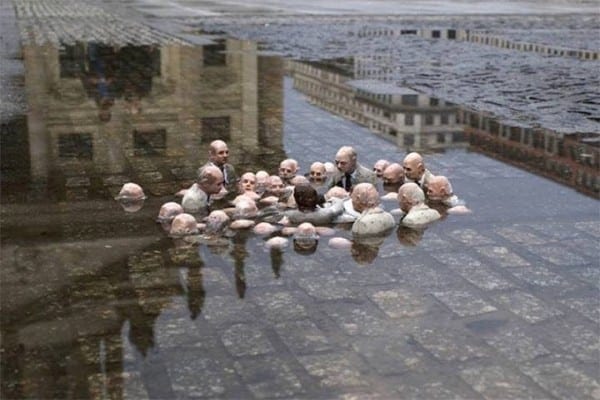
Isaac Cordal’s sculpture, popularly nicknamed “politicians discussing global warming.” (click to expand)
And yet, my own decades-long holistic study of environmental politics leads me to believe that the chances of catastrophic climate disruptions before the year 2115 exceed 70%. But let us humor climate “skeptics” and assume that the chance of a catastrophe is “only” 7%. Should we take that chance?
The answer is: of course not: We should never risk humanity’s future.
Moreover, there is absolutely no reason to gamble with that future. We can solve or curtail the prospects of climate disruptions—and at the same time significantly improve our health, wealth, and prospects of survival. Here are just two examples: We know how to make cars that would be just as good as current cars, but that would be at least four times as fuel-efficient—and we likewise know how to make alcohol.
The only problem with such steps is that they would harm the bottom line of both American and Russian oil and gas companies. And so, on this issue, at least, the madmen in charge of this planet are in accord. According to Jim Hansen, the late 2015 Paris climate change agreement is “just worthless words.” Another expert points to a “lack of political will in Russia to address climate change.”
Nuclear Power
By 1980 I decided to move from smog-filled Irvine to another California location, setting my sights first on the town of Eureka. But, once I noticed the presence of a nuclear power plant nearby, I moved to Oregon. I did so because the horrors of nuclear power were evident by then. In 1977, for example, Ralph Nader and John Abbot wrote (The Menace of Atomic Energy):
“What technology has had the potential for both inadvertent and willful mass destruction . . . for wiping out cities and contaminating states after an accident, a natural calamity, or sabotage? What technology has been so unnecessary, so avoidable by simple thrift or by deployment of renewable energy supplies?”

Fukushima tomatoes, coming, one of these days, to a garden in your neighborhood. It’s freakish tomatoes now—and sick humans, lots more sick humans, now and later. Nuclear power is beloved by both the Russian and American governments not because of its electricity-generating capacity, which, in the long run, is less than zero. They love its connection to nuclear bombs, profits, and aura of sophistication. Nuclear power is also a measure of the scientific ignorance of a country’s leaders, their corruptibility, or their psychopathic tendencies (the “after-me-the-deluge” mindset).
In the long run, nuclear power is probably not a net generator of electricity and it is not, on its own, economically viable (and even if it were, do we really need to split the atom to boil water?). It was created thanks to massive government subsidies to begin with. Moreover, it now exists thanks to government largesse (e.g., since no insurance company in its right mind would insure nuclear power reactors, the nuclear industry says it will build them only if the taxpayers underwrite “liability for future accidents.”)
Two of the three most devastating nuclear power accidents took place in the former Soviet Union, even though that Union had ample fossil fuels and renewable energy resources. Moreover, if anyone had any doubts about nuclear power, the horrors of Fukushima (the worst is yet to become apparent) should have settled the issue. And if Fukushima was not enough, we must now cross our fingers that collapsing Ukraine with its 19 nuclear power plants will not be visited soon by yet another Chernobyl.
Russia’s rulers should know all this, and yet they are hell bent on creating a lot more of these Frankenstein Monsters for domestic use (one new plant every year from now till 2028) and for exports (29 or more–but see this). This amounts to a disheartening 37% of the “civil nuclear facilities under construction globally.”
Oil Spills
“Russian oil industry spills more than 30 million barrels on land each year — seven times the amount that escaped during the Deepwater Horizon disaster — often under a veil of secrecy and corruption. And every 18 months, more than four million barrels spews into the Arctic Ocean, where it becomes everyone’s problem.”
V. Real Democracy: No Meaningful Difference between Russia and America
“A certain class of people—sociopaths—are now fully in control of major American institutions.”—Doug Casey, 2016
Most people readily condemn dictatorial and totalitarian regimes but approve of representative “democracies.” True, such “democracies” might now and then serve the cause of liberty or justice—as they did at times in the American republic during Jefferson’s presidency. But such “democracies” are bound to undergo decay—as happened in the USA from the very start (e.g., genocide of Native Americans and the suppression of the entirely justified Shay Rebellion)—a slow process of decay that in the USA is now approaching fascism.
Likewise, the Russia we see today, where the government has somewhat improved the lot of the people and protected them from foreign occupiers, is a transitory phase. Eventually, the backstabbers—the people who are willing to commit any crime and treachery to enrich and empower themselves—are bound to rise to the top. What you always get at the end (if not now?) is the Ascendancy of the Psychopaths. With Russian-style representative democracy, it’s just a matter of time before the invasion of the democracy snatchers.

The Berlin Philharmonic is perhaps the best in the world precisely because it is the only major orchestra that practices real democracy. Shown here: horn quartet.
I have argued elsewhere that only real democracy can minimize the chances of such a tragic outcome. That is, the people are comparatively safe only when they themselves “make all major political, legal, and judicial decisions.”
Russia tragically ignored both this irrefutable logic and the historical record; instead of choosing real democracy, it aped the Western “democratic” model. Even some of the best Russian minds succumbed to Western propaganda, failing to see that Western “democracies” were in fact oligarchies that would make Syracuse under Dionysius (inventor of the Sword of Damocles soiree) a shining example of liberty and equality.
So now and then, the current leadership of Russia does make a stab at serving the people and protecting them from foreign occupiers. Sooner or later, Russia will turn into a criminal network that use brutality and violence to enforce its “control over given areas and to terrorize others.”
VI. Social Justice: Curbing the Power of Oligarchs and Closing the Gap between Rich and Poor
“The elephant in the room of Russian politics is that a handful of shysters basically stole Russia’s most valuable companies in the 90s, minting a small handful of mega-billionaires, while the rest of the country ate dirt. The ace up Putin’s sleeve if ever he were in need of a popularity boost, would be to strip said shysters of their ill-gotten gains, and redistribute shares to the people. The temptation to rectify the injustice is just too large for it not to happen, so it really is only a matter of time.”
And yet, despite some laudable moves, the injustice is growing by leaps and bounds!
“One percent of the richest people in Russia now own 71 per cent of the country’s wealth. . . . high levels of inequality persisted and even increased throughout most of the 2000s. . . . Social inequalities along gender, ethnic, age, and other lines are another characteristic of contemporary Russian society. . . . Women, elderly people, homeless people, migrants, etc. regularly face discrimination in the country.
“The high cost of modern housing renders it inaccessible for the majority of the population; in 2010, only 19.8 per cent of families could afford to buy new housing with their own savings and/or loans. For the rest, even rent often appears unaffordable; today around half of all young adults (age 21–40) in Russia live with extended family.
 “Economic inequality, according to the views of the Russian population, leads to inequality before the law. More than 70 per cent of Russians believe that the current judicial system in Russia protects the interests of rich and influential people more often than the interests of common people.”
“Economic inequality, according to the views of the Russian population, leads to inequality before the law. More than 70 per cent of Russians believe that the current judicial system in Russia protects the interests of rich and influential people more often than the interests of common people.”
“The number of billionaires has grown at a staggering rate since 2000. According to the Forbes list, there were no dollar billionaires in Russia in 2000. By 2003 there were already 17, and by 2008 this figure had risen to 87. After the crisis of 2008, another 23 billionaires had joined the list. In its report, Credit Suisse stated that the ‘survival chances’ of billionaires in Russia are higher than in any other BRIC or G7 country, and the super-rich in Russia apparently enjoy an especially high level of protection from the state.
“The broad mass of the population lives in varying degrees of poverty.
“The destruction of the forms of social ownership created by the October Revolution has led to inequality levels and a social disaster of historic proportions.”
VII. Merchants of Death
“Russian companies make and sell enough weapons for Russia to remain the second largest exporter [behind the USA] of arms in the world with the portfolio of outstanding orders for Russian-made arms exceeding $40 billion.”
VIII. Incarceration Nation
Incarceration statistics tell us a great deal about a country’s comparative freedom, poverty, criminality, justice system, corruption, internal policies, popular discontent, profound misconceptions about the limits of the criminal sanction, and moral decay. On this score again, the USA is #2 (with 698 prisoners per 100,000 inhabitants, just behind #1 tiny Seychelles), while Russia might (or might not) be #12 (445 per 100,000). By comparison, the respective numbers for Iceland and India are 45 and 33.
IX. Banking: Same ownership as the West
“The issue which has swept down the centuries, and which will have to be fought sooner or later, is the people versus the banks.”—John Acton (1834-1902)
Before talking about Russia, we need to say a few words about central banking in America and the West.
As we have seen, we live now in an upside-down world of perpetual war, tyranny, injustice, materialism, selfishness, starvation, monstrous income inequalities, and ever-growing prospects of human extinction. But this, by itself, constitutes a paradox, because our planet can comfortably provide a decent life for every soul on it. The chaos and suffering must therefore be traced, at least in part, to our rulers.
The ruling clique controlling the U.S., U.K., and most other countries of the world is probably made up of billionaires, generals, and spooks. The best guess is that, at the apex of the pyramid of power and riches, there resides a handful of banking families dedicated to an inter-generational project of enslaving, and perhaps even exterminating, humanity. We have been warned repeatedly over the centuries that, sooner or later, humanity will have to wage an all-out war on these villainous bankers. A brief history of Central Banking shows that in their war against us, the bankers have not only relied on mind control, human failings, co-option, sunshine bribery, rigged elections, contrived terror, and false flag operations, but that they often murdered influential opponents and just about anyone else who could possibly impede their project of world domination.
Originally, the bankers acquired wealth through the fractional reserve scam. This in turn gave rise to numerous other scams, hoaxes, and machinations, needlessly dragging us to wars, fascism, poverty, helplessness, massive transfer of wealth from the people to the bankers, declining health, and a probable environmental catastrophe.
One quote in particular, provided a dire warning to the American people from the very start: William Pitt, Chancellor of the Exchequer, said of the inauguration of the first privately-owned central bank of the United States under Alexander Hamilton:
”Let the American people go into their debt-funding schemes and banking systems, and from that hour their boasted independence will be a mere phantom.”
Such warnings have been issued repeatedly since 1694 (the fateful year when the Bank of England was chartered, a bank whose owners have gradually expanded their influence to the entire world). Here are few warnings (many more can be found here):
U.S. Presidential candidate William Jennings Bryan said [1896]:

Delegates to the Democratic National Convention (Chicago 1896) carrying William Jennings Bryan shoulder high after he delivered his “Cross of Gold” speech (photo source)
“We believe that the right to coin and issue money is a function of government. . . . It is a part of sovereignty, and can no more with safety be delegated to private individuals than we could afford to delegate to private individuals the power to make penal statutes or levy taxes. . . . I stand with Jefferson . . . that the issue of money is a function of government, and that the banks ought to go out of the governing business . . . When we have restored the money of the Constitution, all other reforms will be possible, but until this is done there is no other reform that can be accomplished.”
Canadian Prime Minister William Lyon Mackenzie King (1935):
“Until the control of the issue of currency and credit is restored to government and recognized as its most conspicuous and sacred responsibility, all talk of the sovereignty of Parliament and of democracy is idle and futile.”
And here is one of hundreds contemporary warnings (Charles Hugh-Smith, 2015):
“If we don’t change the way money is created and distributed, nothing really changes: wealth inequality will keep rising, governance will remain a bidding process of the wealthy, wages will continue stagnating, etc.”
All this raises a fundamental question: Who owns and controls Russia’s Central Bank?
The answer is plain. The same parasitic bankers that enslave Western “democracies,” the same bankers that are behind perpetual warfare on humanity, the same bankers that conduct false terror operations to achieve their goals, the same bankers that are destroying our planet’s life support systems, the same bankers that are stealing everything everywhere on earth, the same bankers that pose the gravest risk to our few remaining liberties—are controlling the issuance of money and the finances of the Russian Federation.
The most meticulous documentation of this paradoxical reality known to me comes from Russian historian Nikolay Starikov’s Rouble Nationalization (you can read a book review here or freely download the entire book here):
“The structure of today’s world is a financial one par excellence. Today’s chains consist not of iron and shackles, but of figures, currencies and debts. That’s why the road to freedom for Russia, as strange as it may seem, lies in the financial sphere. Today we are being held back from the progress at our most painful point—our rouble. . . . Our rouble, the Russian currency unit, is—to put it delicately—in a way, not quite ours. And this situation is the most serious obstacle to our country’s development. . . .
“Let us start with the simplest question—who issues roubles? This is easy—the Central Bank of Russia, also known as the Bank of Russia, has the monopoly on issuing the Russian national currency.
“‘Article 6. The Bank of Russia is authorized to file suits in courts in accordance with the legislation of the Russian Federation. The Bank of Russia is entitled to appeal to international courts, courts of foreign countries and courts of arbitration for protection of its rights. . . .
“The Russian economy does not have as much money as required for its proper operation but equal to the amount of dollars in the reserves of the Central Bank. The amount of roubles that can be issued depends of the amount of dollars Russia received for its oil and gas. That means that the whole Russian economy is artificially put in direct correlation with the export of natural resources. This is why a drop in oil prices causes a collapse of everything and everywhere. . . .
“An idea of a bank independent from the state was brought into the Soviet Union as a Trojan horse—through ‘advisors’, through those who had practical trainings at Columbia University, those who were recruited or simply betrayed their country . . .
“Among other things, it contains such amusing details as article 7: ‘Drafts of federal law and regulatory documents of the federal bodies of executive power concerning duties of the Bank of Russia and its performance shall be submitted to the Bank of Russia for approval.’ If you want to dismiss bankers through making amendments to the legislation—kindly submit the draft of the bill to them in advance. Otherwise, they might as well sue you for your legal mayhem in a court of Delaware . . .
“The second security level is the Constitution, as the ‘reformers’ shoved some words on the Central Bank and its status even into the Constitution. Article 75 (points 1 and 2) says that ‘the currency of the Russian Federation is the rouble’, and ‘issuing of money shall only be done by the Central Bank of the Russian Federation’, that ‘it performs independently from any other governing bodies.’ If you want to be surprised—have a look at Soviet Constitutions. Read the Constitution of the USA. You will find no mention of a bank that issues money independently anywhere, because such articles should not be a part of the main law of the country. What body issues the currency is a technical question, it is not fundamental for the country and its people. For the people it is not very significant, but it is a key issue for enslaving the country. That is why it was hastily dragged into the Constitution. And now this technical detail is there next to the fundamental rights of Russian citizens.”
Most truthful observers hold the same view. We have earlier discussed the views of Michael Hudson regarding the related paradox (that of Russia financing its own destruction), a paradox which can be best explained by the fact that Russian finances are under the control of international bankers. But just to dispel any doubts, let me cite a few other observers:
F. William Engdahl (2015):
“The key to Russia’s economy, to any economy for that matter, is the question of who controls the issue and circulation of credit or money, and whether they do it to serve, directly or indirectly, private special interests or for the common national good. . . . The Russian Central Bank . . . [has] de facto life and death power over Russia’s economy. With Article 75 the Russian Federation de facto gave away sovereignty over her most essential power–the power to issue money and create credit.”
And (2015):
“The prospect that there may be collaborators and fifth columnists at Russia’s Central Bank should surprise no one. The RCB is an independent organization that serves the interests of global capital and regional oligarchs the same as central banks everywhere.”
Valentin Katasonov (2015):
“Yeltsin, for example, needed correctly educated and brought-up ‘advisors’. They were needed to present the law on the Central Bank of Russia at the right moment which hardly did less damage than a whole army of invaders in making Russia lose its sovereignty.”
Paul Craig Roberts (2015):
“Putin needs to clear out the traitors who run the Russian central bank and serve the interests of foreign capital at the expense of Russia’s interest.”
The “Saker” (2014):
“Putin rejects the western political model while apparently still fully endorsing its economic model.”
Mikhail Khazin (2016):
“All the real levers of running [Russia’s] economy and finance remain in the hands of people placed there by the very same global financial elite.”
***
Needless to say, this reality—that Russia’s all-important economy and central bank are controlled by the same people who control the Federal Reserve—is consistent with the view that the Russian government is just another criminal gang looking for turf. What’s more, this reality is even consistent with the view that both sides of the Russo-American conflict are simply following the orders of their common banking overlords.
Could Russia’s Ambivalence be Explained?
I call it the Madman Theory, Bob. I want the North Vietnamese to believe I’ve reached the point where I might do anything to stop the war. We’ll just slip the word to them that, “for God’s sake, you know Nixon is obsessed about Communism. We can’t restrain him when he’s angry—and he has his hand on the nuclear button—and Ho Chi Minh himself will be in Paris in two days begging for peace.—Richard Nixon, 1968
Why does Russia take enormous risks in Syria but fails to take the crucial steps of nationalizing its Central Bank and thereby weaken its chief adversary more than any military action possibly could? Why does it let the Rockefellers run its economy? Why didn’t Russia set Syria free from the empire’s brainwashed, crazed, foreign mercenaries by sending large enough ground forces to liberate the whole of Syria in a few weeks, instead of giving its enemies plenty of time to undermine Syria’s independence and territorial integrity? Why in heaven’s name did Russia betray its natural allies Iran and Libya at the United Nations Security Council? Why does it ban GMOs but still insist on boiling more and more water with a radioactive witch’s brew? Why doesn’t Russia take the stolen money and resources from all the criminal, Western-propped, oligarchs and return them to the people? Why does Russia simultaneously act for and against the interests of its people and of humanity as a whole?
It is doubtful that anyone—including the Russian leadership itself—knows the answer. Here, instead, are a few guesses.
1. One intriguing explanation has been recently put forward by the “Saker.” According to him, real power in Russia is held by two principal camps. The first is comprised of the “Atlantic Integrationists,” the oligarchs who connive to make Russia join the West as a junior partner. These Integrationists
“are still in full control of the Russian financial and banking sector, of all the key economic ministries and government positions, they control the Russian Central Bank and they are, by far, the single biggest threat to the rule of Putin and . . . to the Russian people and Russia as a whole.”
The second camp is comprised of “Eurasian Sovereignists” whose goal is “to fully sovereignize Russia and make her a key element in a multi-polar but unified Eurasian continent.” This camp enjoys the support of 90% of the Russian people and the military, police, and intelligence services.
The balance between these two inimical factions has only recently reached a 50/50 point of (unstable) equilibrium. Putin, we are assured, “is a very good man in charge of a very bad system.” His acts cautiously and timidly because his hands are tied and because he must always watch his back and prevent his overthrow.
So it’s just a matter of time until Putin and his faction “crack down on the Central Bank and the economy ministries.”
I don’t find this explanation persuasive. Since Putin enjoys the support of the Russian people, police, army, and intelligence services, the solution to this 50/50 configuration is simple. Dismiss the fifth columnists, return most of their wealth to where it belongs (the Russian people), and offer them a deal they can’t refuse: Prison terms for murders and thefts, or comfortable retirement in Russia with a few millions of their ill-gotten gains intact.
2. A second, more convincing explanation for Russian puzzling timidity is again offered by the Saker:
“I am sure that Putin fully realizes that, at least potentially, his policy of resistance, sovereignization and liberation can lead to an intercontinental nuclear war and that Russia is currently still weaker than the AngloZionist Empire. Just as in the times of Stolypin, Russia desperately needs a few more years of peace to develop herself and fully stand up.”
3. The situation could be worse. Throughout the first chapter of the Cold War (1945-90), Russia was always lagging behind. Even the Cuban Missile Crisis, according to one source, was a sadly asymmetrical standoff. Does the Invisible Government of the UK/US still possess a decisive military trump card which forces Russia to tread with extreme caution?
4. A slight variation of this speculates that Putin knows he is dealing with Dr. Strangeloves and General LeMays. These madmen have been terrorizing the world for a quarter of a century with impunity and are not yet psychologically reconciled to a position of primus inter pares (first among equals). Perhaps, Russian policy makers might feel, the madmen controlling Washington need time to adjust to new realities. Russia’s foreign minister put it this way:
“The West’s total domination . . . is in the midst of a long transition period to a more durable system in which there will not be one or even two dominant poles–there will be several. The transition period is long and painful. Old habits die slowly. We all understand this.”
5. The Russians might suspect that the American empire might be close to self-destruction. Russia must avoid at all costs an all-out nuclear war and merely give the empire enough rope to hang itself.
6. There is no reason to believe that run-of-the-mill politicians are smarter, better educated, or endowed with a more holistic vision of the world than most plumbers, basketball players, scientists, or other specialists. In this world of ours, it is only a rare individual who can achieve both power and wisdom. So it is conceivable that Russian leaders operate in the dark when it comes to understanding and reacting to such complex challenges as psychopathy, climate change, nuclear power, overpopulation, dollar hegemony, or banking.
7. London and Washington have a long, indisputable, tradition of assassinating their opponents. In fact, assassinations constitute one of the seven pillars of their power. For example, Nikolai Starikov, a contemporary Russian historian, presents strong evidence that the English government murdered Stalin and, before that, almost all the descendants of Louis XIV of France. The evidence that this practice continues to the present day is conclusive, with a higher level of probability than the assertion that tobacco kills. By now the Invisible Government has perfected its assassination technology to the point of killing with impunity, without anyone being able to definitely prove their involvement. Could the timidity of Russia’s leaders be traced to their justified fear for their very own lives?
8. The City of London and Wall Street have been bribing their way to victory for centuries. Could they likewise be bribing, or promising the moon, to a powerful segment of the Russian leadership?
9. For centuries, Russian leaders appear to have been under the spell of Western snake charmers. Before Tolstoy’s time, the Russian upper class preferred French to its own beautiful language and some Russian intellectuals hoped that Napoleon would conquer Russia. Later, some Russian intellectuals, seeing the horrors of Stalinism, strove for American victory in the Cold War (until their dream came true and they realized that they naively undermined their own people and culture). The same psychology, the same unjustified but deep-seated inferiority complex, could explain Russian failure to react decisively to the existential threats it faces now.
10. We know that the key institutions in Russia—its central bank and finance ministries—are controlled by the same bankers who control Washington. Isn’t it reasonable to assume that the Russian government is under the control of these bankers too?
11. The last explanation that comes to mind can be best introduced with the perceptive short story “Lather and Nothing Else,” of Colombian writer Hernando Téllez.
The setting is a barbershop in a Colombian town. The narrator is the barber, a member of the revolutionary movement struggling against a banker-propped savage oligarchy. A captain of the Colombian version of the Death Squads enters the barbershop to have a shave. This captain, the revolutionary barber knows, is a fiendish cutthroat trying to scare the townspeople into submission. Recently, the captain forced the entire town to witness the brutal execution and mutilation of four of the barber’s fellow revolutionaries. The four were stripped naked, hung, and then certain parts of their bodies were used for target practice. The captain also tells the narrator of his plan to kill and torture more prisoners later that day.
The narrator, holding a sharp razor in his hands and attending to the defenseless murderer, faces a wrenching dilemma. On the one hand, he knows he should kill the villain, if only to delay the impending doom of his imprisoned comrades. On the other hand, he knows that such an action would either cost him his life or radically alter it. He recoils from the image of cutting throats, of snuffing out the life of a monster in the shape of a human being. He also feels that “he is a revolutionary, not a murderer.” What he wants in life is “lather and nothing else.”
Throughout the shaving session, the narrator believes that the captain knows nothing of his, the barber’s, revolutionary sympathies or internal struggle. At the end, upon leaving unscathed, the Death Squad captain says: “They told me that you’d kill me. I came to find out. But killing isn’t easy.”
It could be that the current Russian leadership finds itself in a similar situation to that barber. For the enemies of Russia, scruples are incomprehensible at best, contemptible at worst. To win against such villains, the leaders of Russia must employ their opponents’ tactics. But for good people, this is easier said than done. Could it be that the Russian leadership is just too decent or timid to engage in assassinations, regime changes, destabilizations, and genocides?
These are all the possible explanations I can cull from the literature or come up with at the moment. No doubt such explanations or others, separately or jointly, account for the paradox of Russian indecisiveness.
Regardless of the correct explanation, no one could accuse the Russian leadership of competently and wholeheartedly fighting for a better, safer, freer, and fairer world.
The Balance Sheet
Instead of a clearcut resolution, our backbreaking game of chess ended in a stalemate. Before trying to make sense of this outcome, let’s summarize it.
We began with the question: Should those of us who are aware and who care support Moscow’s struggle against Washington or should we view it as a struggle between two competing criminal gangs?
We next showed that the USA is indeed controlled by a criminal network, and provided a brief review of the 1990s plunder of Russia by America’s rulers.
We then moved on to explore the provocative statement that the Russian government is just another version of organized—and legal—crime. This survey yielded the following results:
- For ordinary Russians, Putin’s rise to power was a mini-miracle. Suddenly, a government appeared in Moscow that stopped the plunder and disintegration of the Gorbachev and Yeltsin years, and restored normalcy. Poverty, lawlessness, and corruption declined, life expectancy, industrial production, and agriculture vastly improved, the further disintegration of the Russian Federation was brought to an end, CIA efforts to destabilize Russia were counteracted, Crimea was restored, the vicious attempt of overthrowing the democratically elected secular government of Syria is being thwarted by military means, defense capabilities were vastly improved, and the power of the criminal oligarchs have been diminished. Russians could again feel proud of their country and heritage, and they could, at long last, trust their government.
- On the military and political front, Russia is standing up to American imperialism and is apparently striving to resurrect the multipolar world of the Cold War years. If it succeeds, this can only be welcomed by the world’s war-weary people, especially by countries trying to escape the depredations of the bankers and strike an independent path. Paradoxically though, on many other occasions involving its allies and vital interests, Moscow turned a blind eye while the Invisible Government turned country after country into a wasteland. Likewise, on the economic front, Russia is actually enabling the strangulation of its economy and currency as well as financing its own military encirclement and eventual conquest.
- The same perplexing indecisiveness is observed in the critical information wars. While Russia has taken some steps in presenting its version of events to the world, and while it limits the Invisible Government’s control of its media, Russian TV is for the most part owned by the state, the Russian media suppresses inconvenient truths and genuine dissent, and they often parrot American lies instead of exposing them.
- Russia and America are equally indifferent to humanity’s environmental predicament. The only bright spots in Russia’s environmental record is its incipient opposition to genetically modified crops and to Rockefeller medicine and its intention to pursue organic agriculture. Apart from that, Russia mimics or even outdoes America in its attack on the biosphere and the health of its people. For instance, it learned nothing from its own nuclear catastrophes in Kyshtym and Chernobyl and is developing nuclear power for exports and domestic consumption. Or, to take another example, Russia does nothing to mitigate the specter of climate disruptions.
- Instead of establishing real democracy, Russia aped the Western model of representative “democracy.” Even at the best of times, such “democracies” do not represent the interests of ordinary people. Sooner or later, they are doomed to be taken over by psychopaths.
- “A handful of shysters basically stole Russia’s most valuable companies in the 90s, minting a small handful of mega-billionaires, while the rest of the country ate”—and is still eating—dirt. Very little has so far been done “to strip said shysters of their ill-gotten gains, and redistribute shares to the people.” As a result, unlike the much-maligned Soviet Union, Russia is plagued by vast income inequalities, poverty for the majority, inequality before the law, and unaffordable housing.
- Russia is the second largest exporter of killing machines in the world (behind the USA), and, allegedly, #12 incarceration nation (the USA is #2).
- Incredibly, Russia’s central bank and economy are under foreign control. Unless the Russian Constitution is overhauled, and unless Russia regains control of its economy and currency, Russia is sure to follow the disastrous, life-destroying, path of countries ruled by and for bankers.
The Russian Phoenix: Hope or Illusion?
The madmen are planning the end of the world. What they call continued progress in atomic warfare means universal extermination, and what they call national security is organized suicide.—Lewis Mumford, 1946
We have now assembled, in one place, some facts and arguments about the bewildering ambivalence of the current Russian government—enough, hopefully, for readers to make up their own minds.
For my part, this assemblage suggests the following tentative resolution.
To begin with, I feel that this issue can be best addressed by asking two questions, not just one.
The first question is: Should we—humanitarians or revolutionaries—sympathize with Russia in its current half-hearted struggle with the Invisible Government?
My answer to this question depends on the validity of Brandon Smith’s hunch that Russia and the U.S. are dueling in a fake gladiator match. If his hunch turns out to be correct, then that match is no concern of ours.
But if the Russian government is nothing more than a criminal network competing with other networks for turf, or if, as appears more likely, it is a government that is partially committed to strengthening Russia and improving the lives of ordinary people, then our sympathies should be with Russia. Unlike the American or English governments of the last 15 years, the Kremlin during that time has made Russia stronger and happier. Moreover, if Russia succeeds in restoring a multipolar world, the vast majority of people everywhere will benefit. To see this, you only need to compare living conditions of ordinary people in Crimea to the rest of Ukraine, in Syria (where hope is still alive and where depleted uranium is not yet contaminating the land) to Iraq, in the USA and the West before and after Soviet collapse. And, Russian success would open a much-needed space for humanitarian and revolutionary struggles everywhere.
The second question is: Should we dedicate our meager resources exclusively to our own revolutionary program, or should we also divert some resources to Russia’s dubious struggle for building an alternative to the Invisible Government?
In the long run, it makes little difference to the world’s people and to the future of humanity if the bankers exercise their vicious rule through the City of London, Wall Street, Beijing, Moscow, Timbuktu—or an habitable planet of Alpha Centauri. Moreover, absent sweeping reforms, it is unrealistic to expect Russia to come even close to realizing the dream of a more free, just, peaceful, and survivable world. If we share that dream, then all our resources should be dedicated to its single-minded pursuit.
To sum up my own appraisal. Progressives and revolutionaries of every nation on earth ought to sympathize with the Russian government’s struggle against the bankers. However, they cannot realistically expect that government to do their work for them. When it comes to the crucial struggle for survival, freedom, peace, and justice, they are on their own.
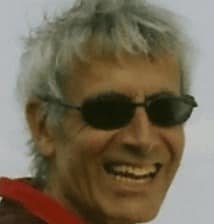 Moti Nissani is professor emeritus, Wayne State University, interdisciplinarian, and compiler of A Revolutionary’s Toolkit.
Moti Nissani is professor emeritus, Wayne State University, interdisciplinarian, and compiler of A Revolutionary’s Toolkit.
Note to Commenters
Due to severe hacking attacks in the recent past that brought our site down for up to 11 days with considerable loss of circulation, we exercise extreme caution in the comments we publish, as the comment box has been one of the main arteries to inject malicious code. Because of that comments may not appear immediately, but rest assured that if you are a legitimate commenter your opinion will be published within 24 hours. If your comment fails to appear, and you wish to reach us directly, send us a mail at: editor@greanvillepost.com
We apologize for this inconvenience.

 Nauseated by the
Nauseated by the
vile corporate media?
Had enough of their lies, escapism,
omissions and relentless manipulation?
GET EVEN.
Send a donation to
The Greanville Post–or
SHARE OUR ARTICLES WIDELY!
But be sure to support YOUR media.
If you don’t, who will?
ALL CAPTIONS AND PULL-QUOTES BY THE EDITORS, NOT THE AUTHORS.

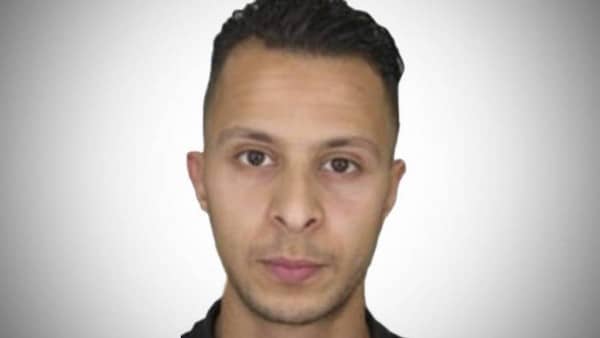
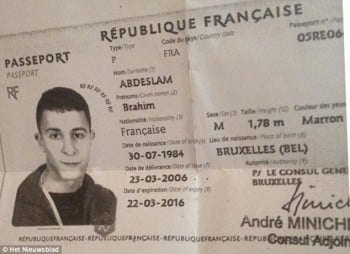


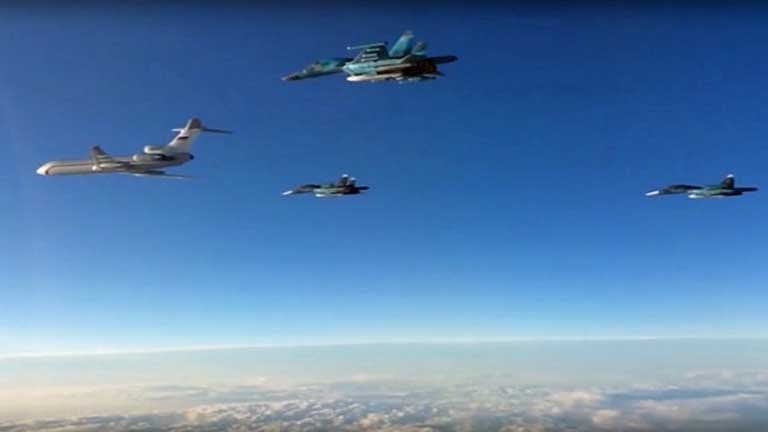
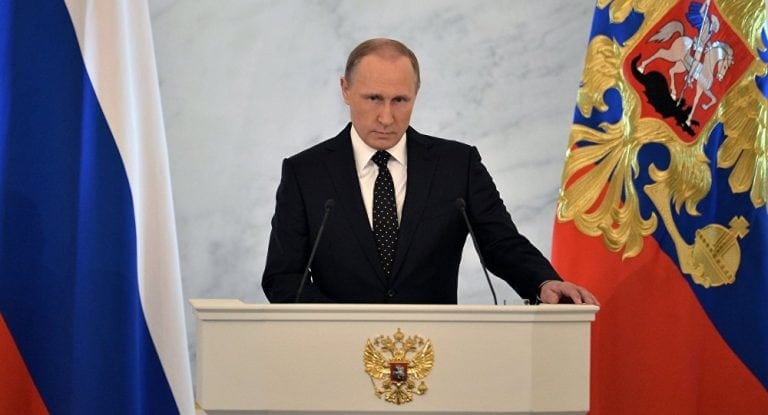
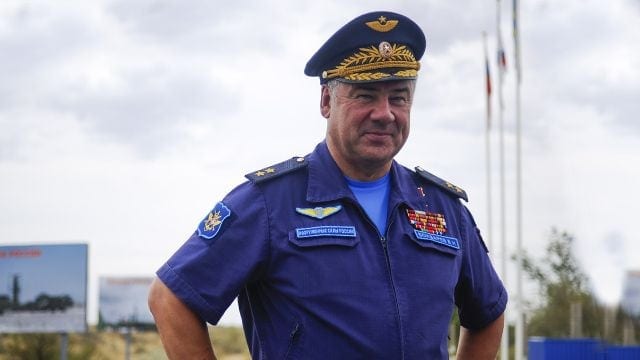
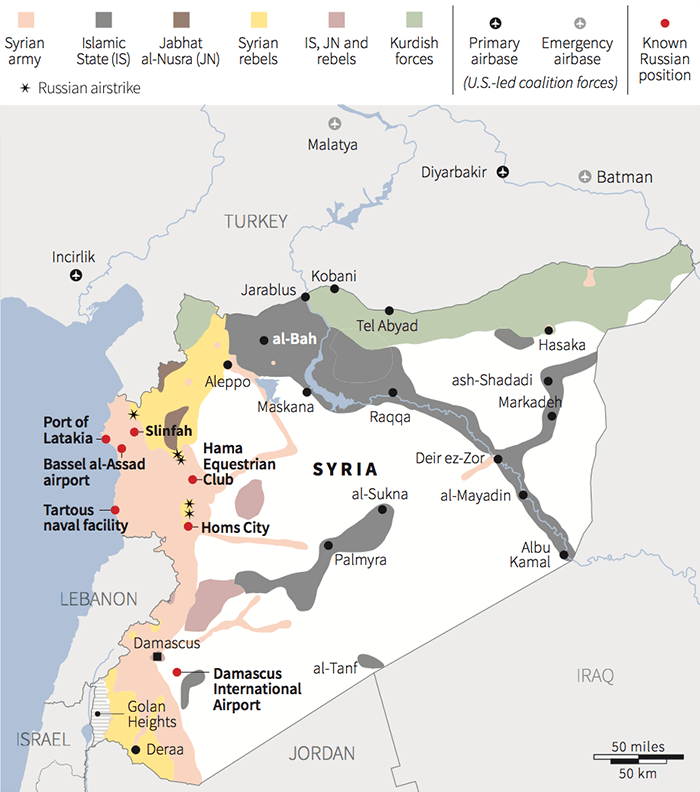
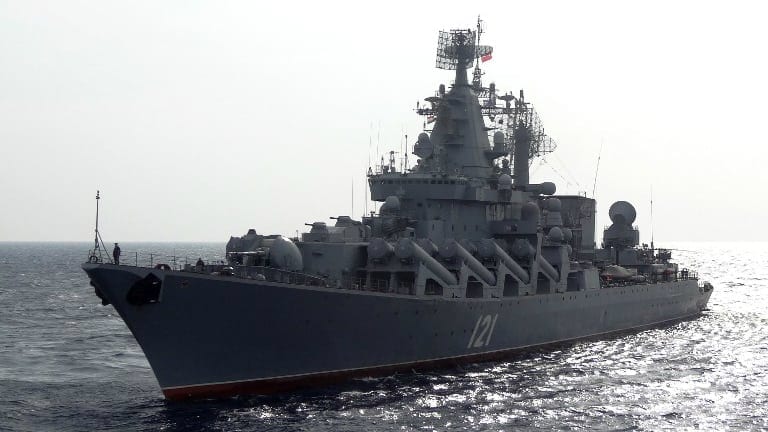
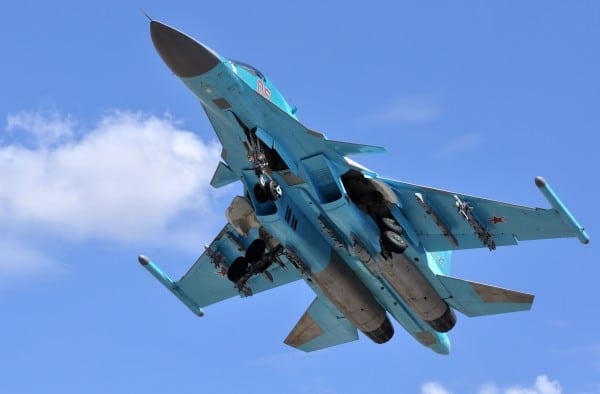
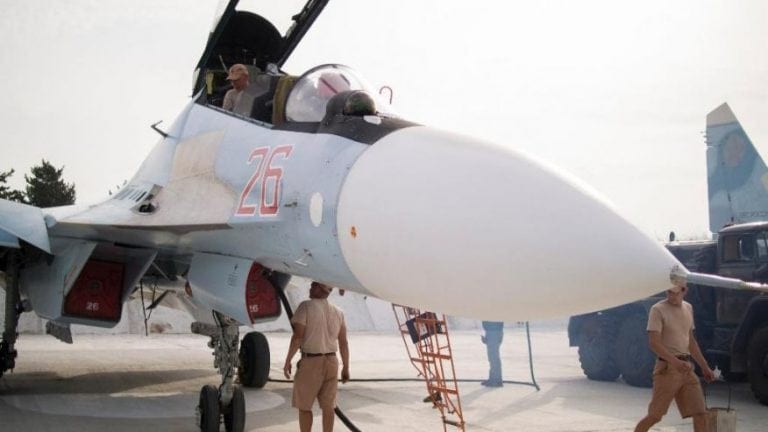
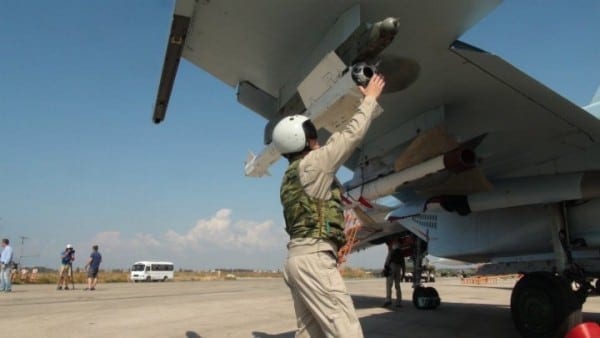
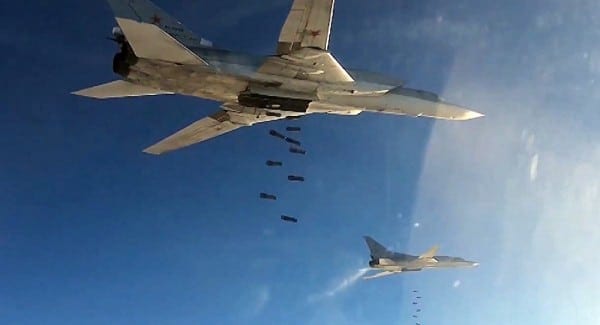
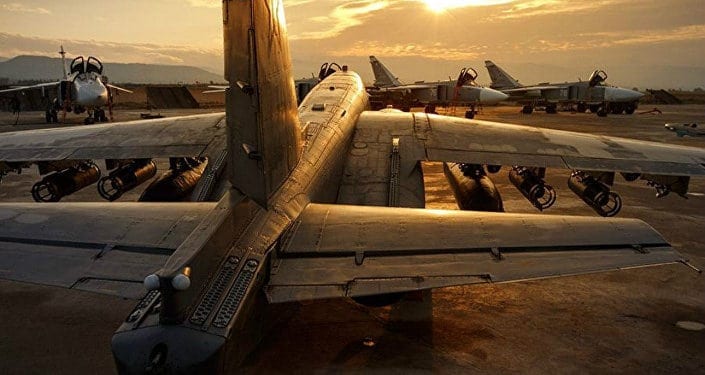
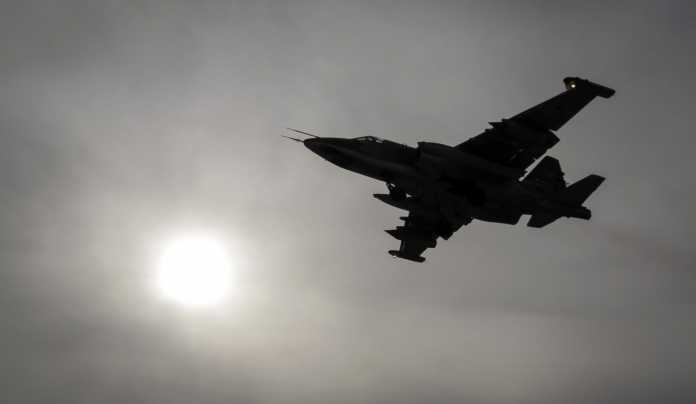
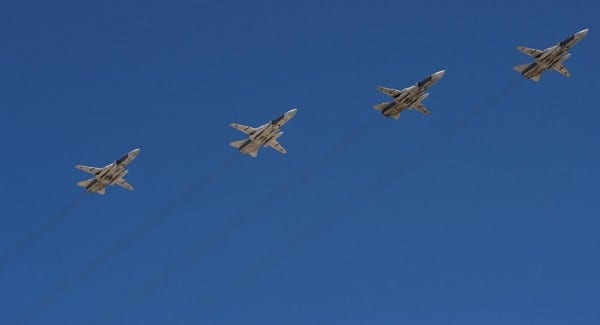
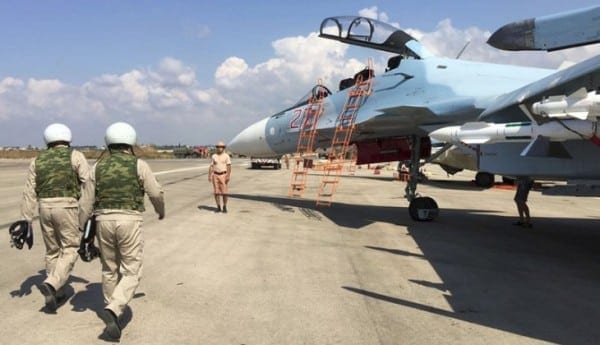
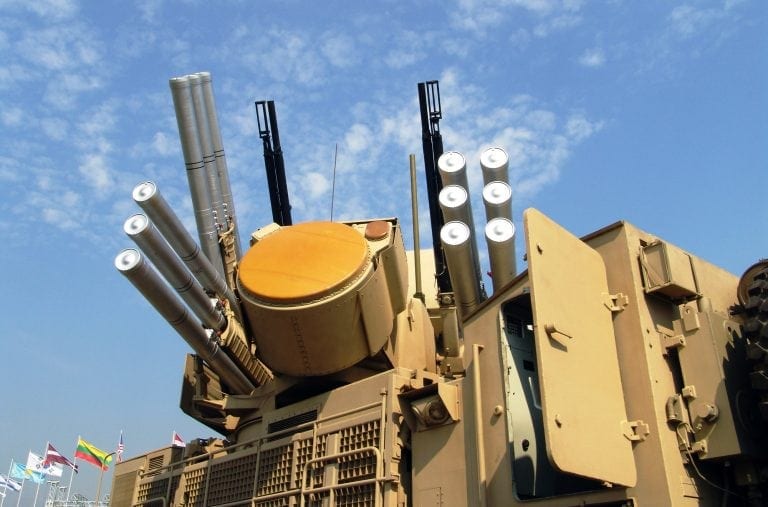
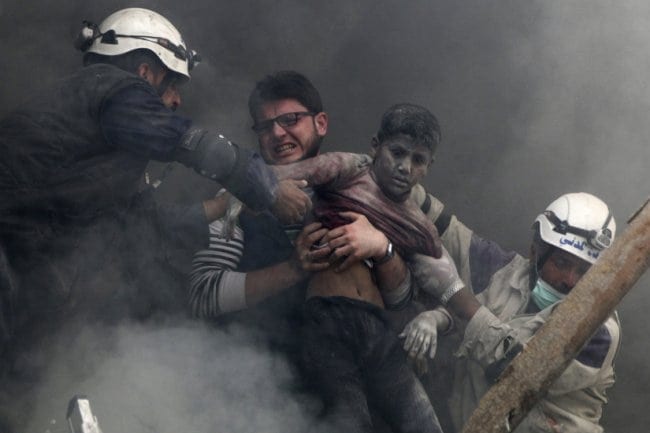
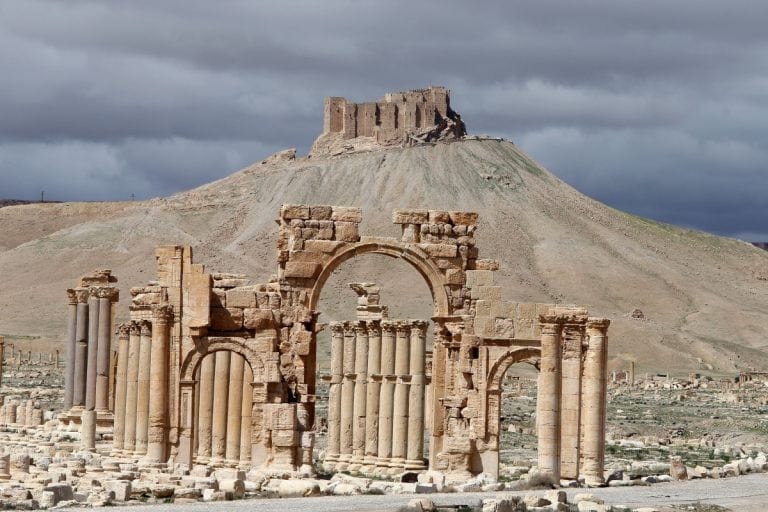
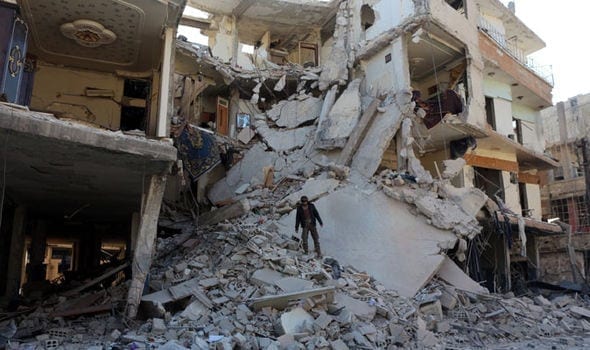

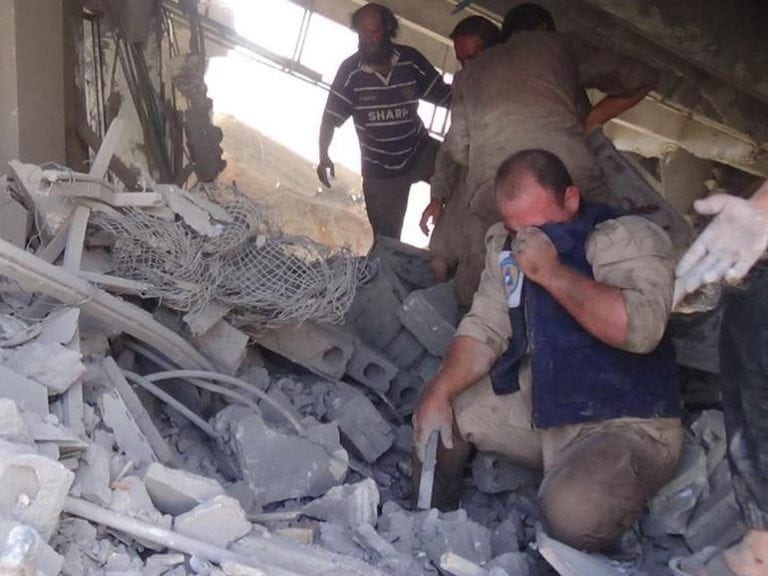
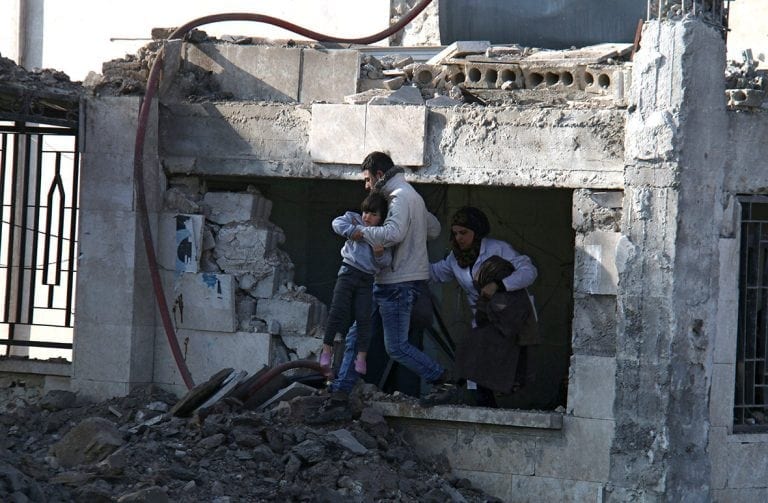
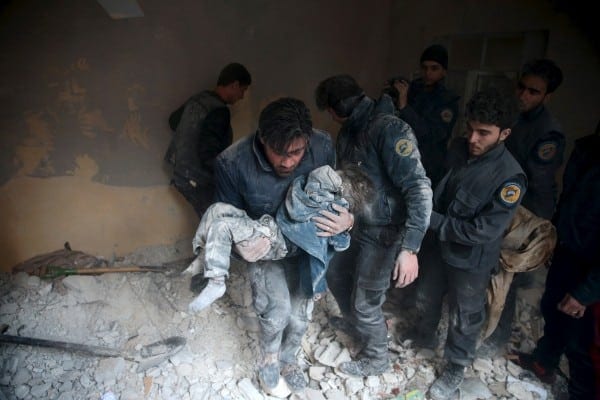
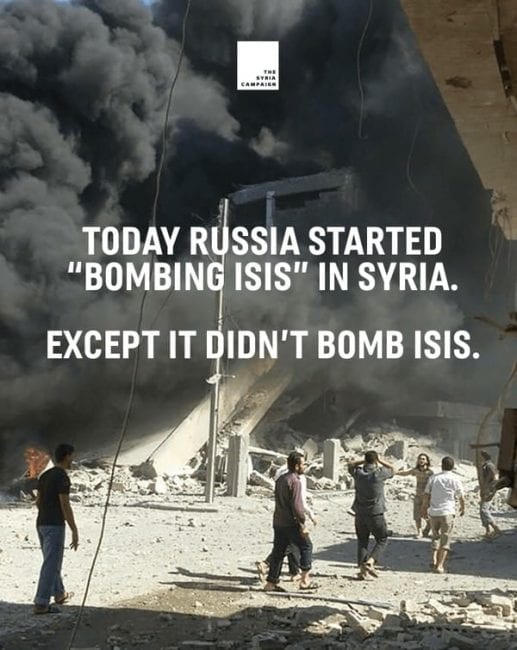
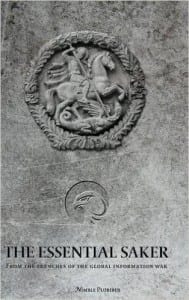


 “so awake and aware of the false left/right paradigm while remaining astonishingly naïve and short sighted when it comes to the false East/West paradigm. There are no “sides” in any modern conflict, only proxies fighting on a global chessboard controlled by the same elitist interests. . . . War is meant to forcefully change the “inertia” of civilization, and thus, forcefully change the direction of civilization in a manner that benefits the engineers of the conflict. . . .”
“so awake and aware of the false left/right paradigm while remaining astonishingly naïve and short sighted when it comes to the false East/West paradigm. There are no “sides” in any modern conflict, only proxies fighting on a global chessboard controlled by the same elitist interests. . . . War is meant to forcefully change the “inertia” of civilization, and thus, forcefully change the direction of civilization in a manner that benefits the engineers of the conflict. . . .”


 Water, a basic human right, provides one macabre example of the bankers’ shock doctrine. As part of the austerity regime, thousands of people who cannot afford to pay for their water—including Detroiters living within sight of the mighty Detroit River—must do
Water, a basic human right, provides one macabre example of the bankers’ shock doctrine. As part of the austerity regime, thousands of people who cannot afford to pay for their water—including Detroiters living within sight of the mighty Detroit River—must do 

 By 2007, these extreme provocations, the earlier looting of Russia, its ongoing encirclement, a series of regime change attempts
By 2007, these extreme provocations, the earlier looting of Russia, its ongoing encirclement, a series of regime change attempts 




 “Economic inequality, according to the views of the Russian population, leads to inequality before the law. More than 70 per cent of Russians believe that the current judicial system in Russia protects the interests of rich and influential people more often than the interests of common
“Economic inequality, according to the views of the Russian population, leads to inequality before the law. More than 70 per cent of Russians believe that the current judicial system in Russia protects the interests of rich and influential people more often than the interests of common 



